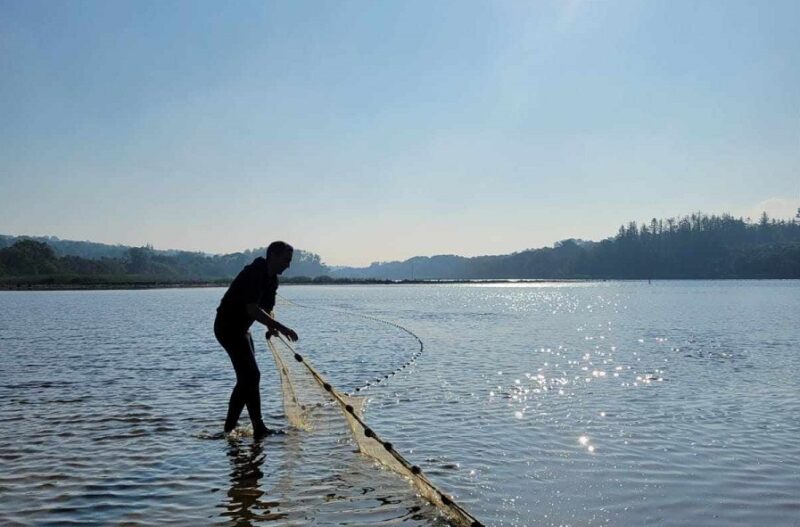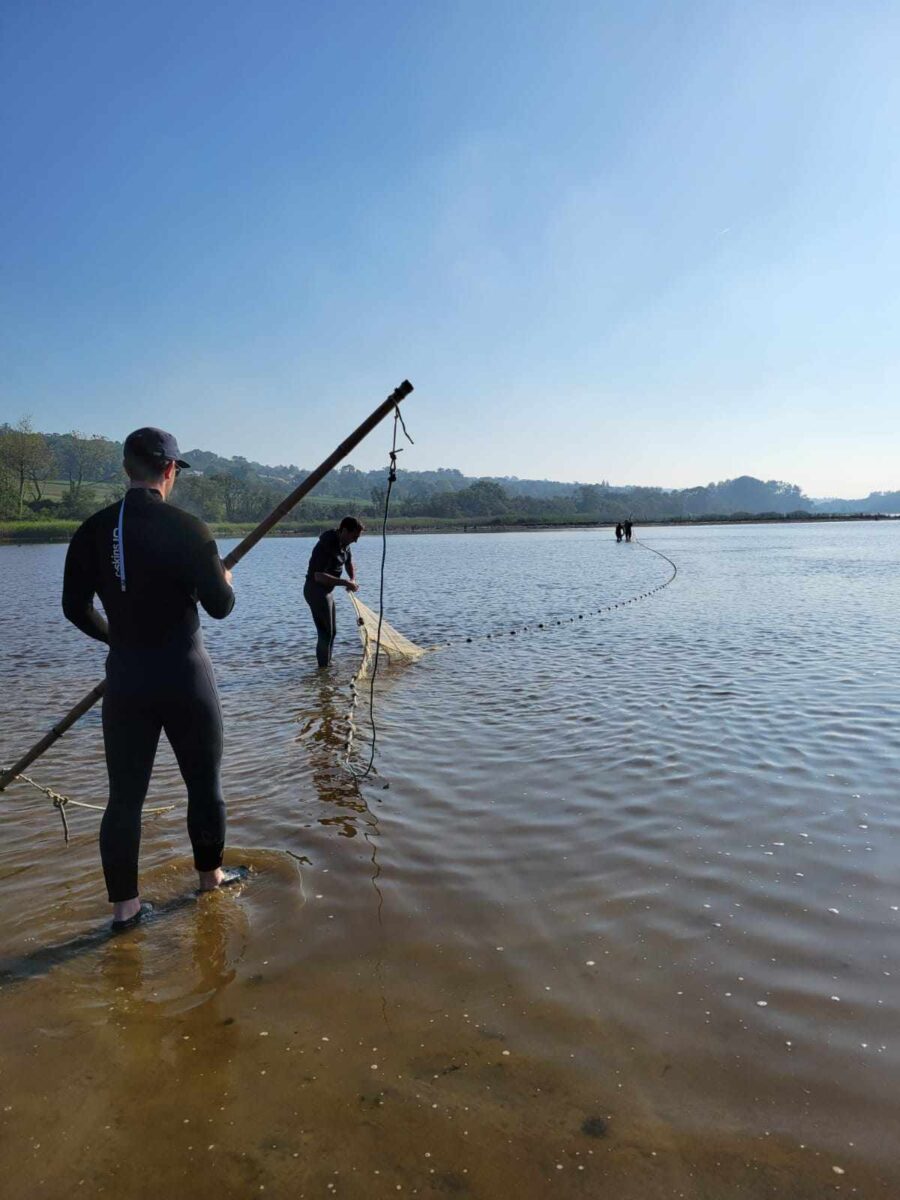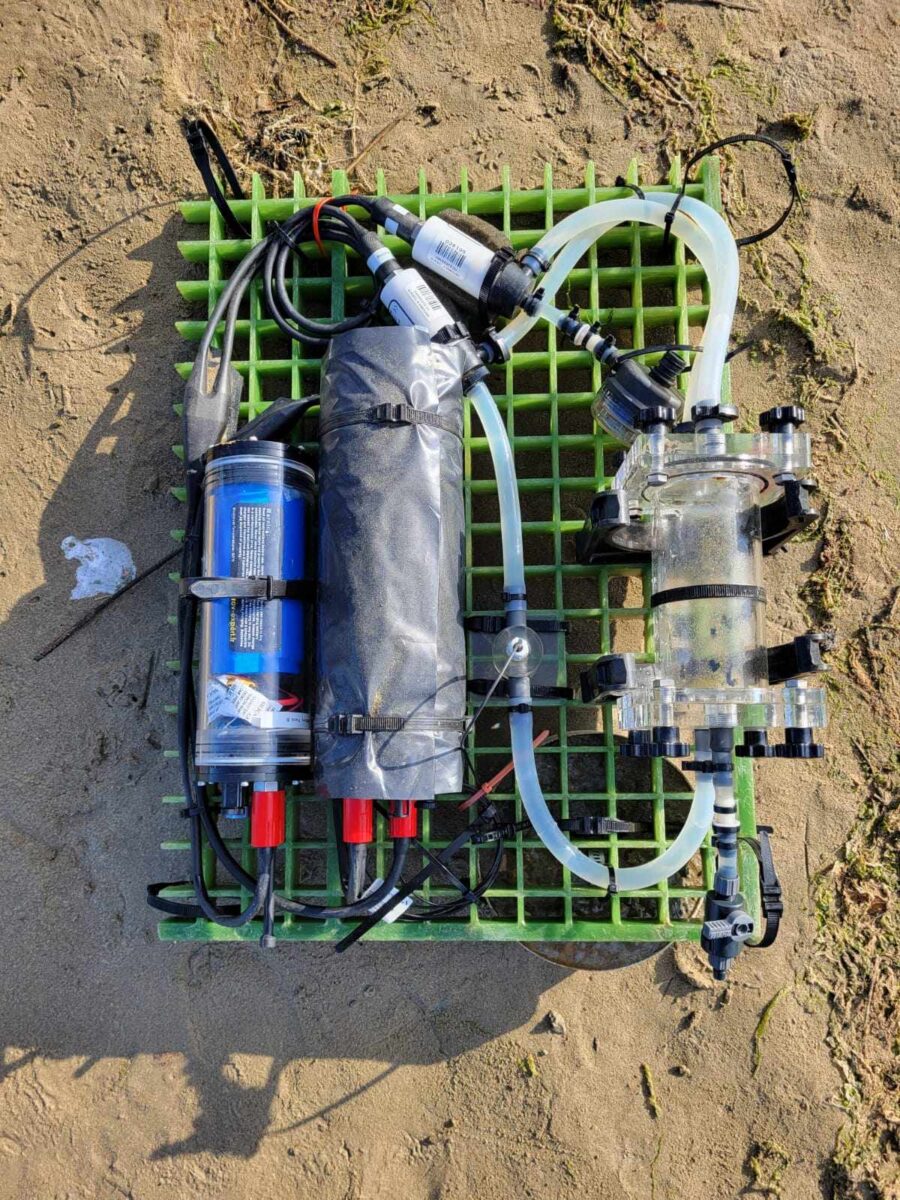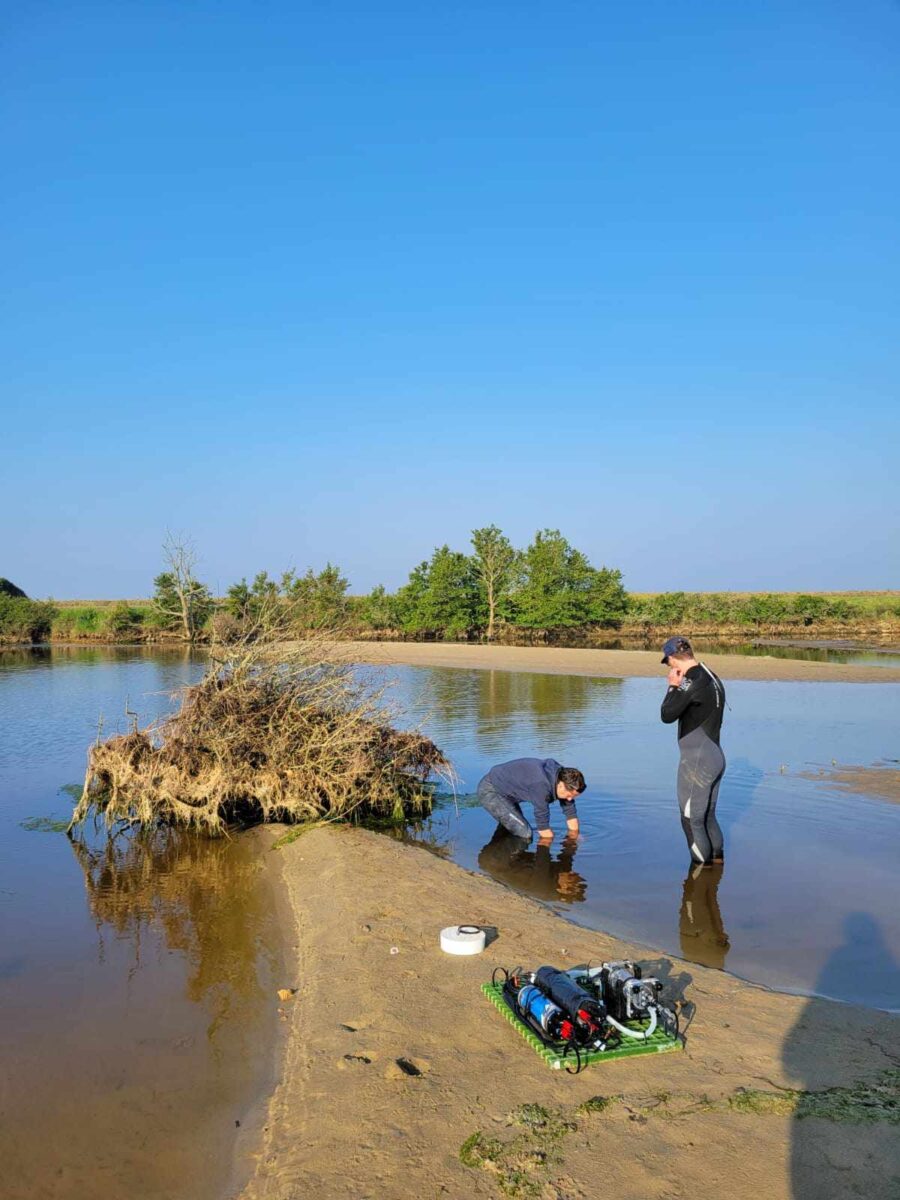Léopold Ghinter Studies the Metabolism of Juvenile European Sea Bass in Their Natural Environment

Léopold Ghinter studies the ecophysiology of fish, focusing mainly on the impact of the environment on their life-history traits. Against a backdrop of climate change and intensifying human pressures, fish are facing increasing environmental stress and have to adapt to a constantly changing environment.
As part of the RESPI project at LEMAR, Léopold Ghinter (postdoc ISblue 2023-2025) is particularly interested in the metabolic capacities of juvenile European sea bass in their natural environments, in other words their nurseries, crucial habitats for the recruitment of fish populations and the preservation of biodiversity.
Léopold has just returned from a mission to the Aber de Crozon, to measure the metabolic rates of juvenile wild European sea bass in their natural environment, which means directly in the nursery.
‘This is a “test” mission to check the functionality of Canadian machines designed by the RESPI project’s partner researcher, David Deslauriers: field respirometers. These machines are used to measure the oxygen consumption of juvenile fish, that is to say their respiration or metabolic rate.

These data will enable us to assess the metabolic responses of wild juvenile European sea bass to a changing environment, directly in the wild. This is a pioneering project in Europe, and will enable us to measure whether the integrity/quality of estuarine nurseries for juvenile fish is under threat in the current context of climate change and increased and more intense heat waves.
The initial data are very promising, as we are observing clear variations in metabolic rates in relation to widely varying temperatures. Daily amplitudes ranging from 16°C to over 24°C as early as May! In addition, salinity varies from 4 PSU to 30 PSU.
Following the success of the ‘test’ mission, full-scale sampling is planned. The metabolic rates of around thirty juvenile fish will be measured during the hottest period of the summer, in August-September’.



Academic Career:
Léopold Ghinter is a Postdoc ISblue for the LEMAR (PHYTNESS) and DECOD (HALGO) laboratories.
After obtaining his bachelor’s and master’s degrees in Rennes and La Rochelle, he completed his PhD in Canada (2016-2020) at the Institut des Sciences de la Mer in Rimouski, under the supervision of Céline Audet and Yvan Lambert, on the ecophysiology of Greenland halibut.
After completing his doctorate, he carried out various research contracts (policy officer, post-doctorate, research professional) in Canada in 2021, then pursued a post-doctorate at the Université du Québec à Rimouski with Dr Pierre Blier.
 Attention, vous utilisez un navigateur peu sûr !
Attention, vous utilisez un navigateur peu sûr !